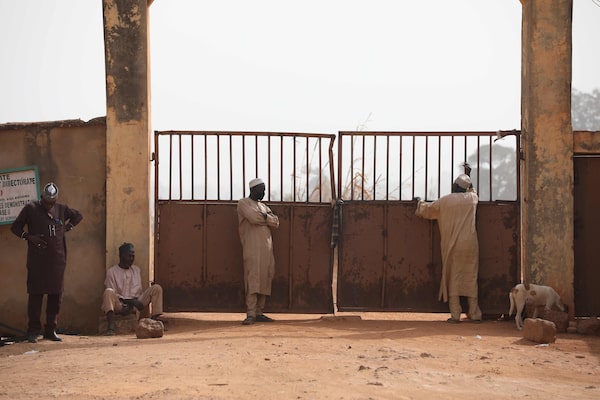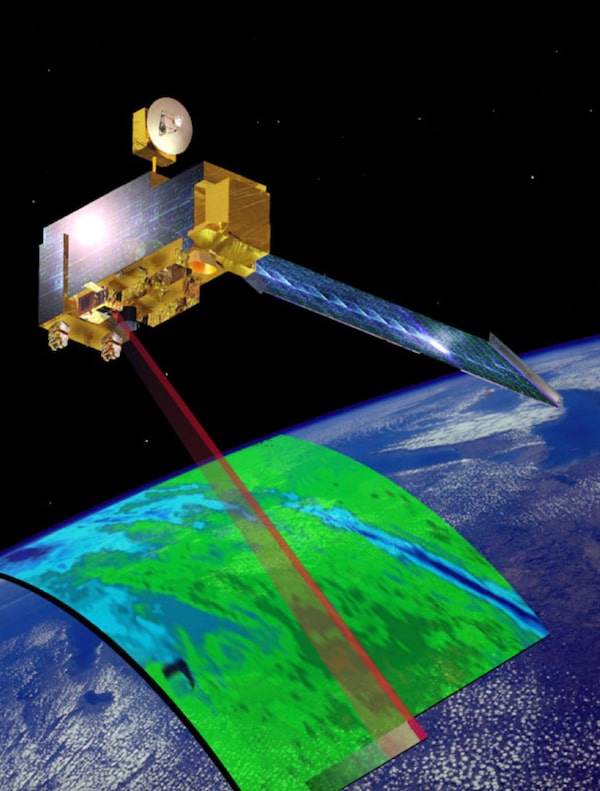Good morning,
One of China’s largest state-owned investment funds is among the biggest backers of a company the Canadian government uses to collect and process personal information from visa applicants around the world.
Here’s the chain of ownership: TT Services runs visa application centres for the Canadian government in 24 countries, offering services that include collecting fingerprints, photos, biographical information and other personal data. TT Services is owned by VFS Global, which began processing visas in China in 2008. Documents filed with Britain’s corporate registry show Chengdong Investment Corp. is a major contributing partner to VFS Global. And Chengdong is a subsidiary of China Investment Corp., a Chinese state-run giant.
This ownership structure has prompted some of Canada’s former foreign intelligence leaders to warn that Ottawa should think carefully about trusting sensitive information to a company partly owned by the Chinese state. Chinese national law also requires any organization operating inside the country to co-operate with intelligence services.
This is the daily Morning Update newsletter. If you’re reading this on the web, or it was forwarded to you from someone else, you can sign up for Morning Update and more than 20 more Globe newsletters on our newsletter signup page.
Transport Canada’s clearance of Boeing 737 Max raises new questions
Even after the U.S. Federal Aviation Administration said in November that it believed Boeing had fixed the plane’s flaws and would unground the 737 Max, aviation experts and families of the crash victims in the United States held out hope that Canada would take a stronger stand against the FAA, delaying its own approval and pushing for more say in how planes are scrutinized.
But the Canadian government announced Thursday that it had validated the FAA-approved design changes, setting the stage for the plane to return to the sky early next year. Canadian officials say they have taken all necessary steps to ensure that the 737 Max is now safe.
Most kidnapped schoolboys in Nigeria said to be rescued
In Nigeria, Katsina State’s Governor Aminu Bello Masari told reporters on Thursday night that his officials have freed more than 300 of the schoolboys from a forest in neighbouring Zamfara State.
The rescue came hours after Boko Haram released a shocking six-minute video of school kidnapping victims. In the video, dozens of boys were visible – and while most of the victims are believed to be 15 or 16 years old, some in the video seemed much younger. The video is also the latest evidence that the radical Islamist militia had committed another mass kidnapping, six years after its notorious Chibok schoolgirl kidnapping.

Parents wait outside the Government Science Secondary school in Kankara, in northwestern Katsina State, Nigeria on December 16, 2020.KOLA SULAIMON/AFP/Getty Images
Got a news tip that you’d like us to look into? E-mail us at tips@globeandmail.com Need to share documents securely? Reach out via SecureDrop
ALSO ON OUR RADAR
Avi Liberman becomes first Israeli-born comedian to perform in the UAE: Liberman’s comedy set in Dubai was no joking matter. It’s a breakthrough made possible by the September signing of the Abraham Accords, the long-awaited normalization of relations between Israel and Arab states including the United Arab Emirates and Bahrain.
What people with allergies need to know about COVID-19 vaccine: People with common allergies, such as to food, pollen or pets, are no more likely than the rest of the population to have a rare allergic reaction to the COVID-19 vaccine, according to experts. For more information about allergies and the COVID-19 vaccine, read this piece.
Ontario considering new COVID-19 restrictions: The Ontario government is considering new restrictions, including an extended school holiday break, as the province’s hospitals issued an urgent call for further lockdowns to address rapidly rising COVID-19 case totals.
B.C. seeks payback for some pandemic relief: The B.C. economy is starting to recover from the effects of the pandemic, a new fiscal update shows. But for students, municipalities and some businesses, the shift means that the province is now seeking to collect on temporary payment relief offered in the early months of the economic shutdown.
COVID-19 Christmas care: Seven B.C. health workers share stories of saving lives in the second wave. The journal entries in this piece recount their observations through November and December.

Six B.C. health-care workers share their experiences in the COVID-19 pandemic. Left column: Jayne Hamilton and Dr. Steve Reynolds. Second column: Tiffany Lee and Dr. Jeevyn Chahal. Middle: Shane Sander. Right column: Dr. Cyrus McEachern and Rachel Mrdeza.Supplied
MORNING MARKETS
Brexit in focus for European markets: European shares wavered early on Friday, capping the last full trading week of the year with investors still on edge over a Brexit trade deal and U.S. stimulus package. Just before 6 a.m. ET, Britain’s FTSE 100 rose 0.30 per cent. Germany’s DAX edged up 0.10 per cent while France’s CAC 40 slipped 0.03 per cent. In Asia, Japan’s Nikkei slid 0.16 per cent. Hong Kong’s Hang Seng finished down 0.67 per cent. New York futures were flat. The Canadian dollar was trading at 78.37 US cents.
WHAT EVERYONE’S TALKING ABOUT
Erin O’Toole scores a self-own in his lesson on schooling the ‘woke left’
Robyn Urback: “Mr. O’Toole’s lesson in “owning the libs” – or rattling or humiliating liberals – might be amusing to the likeminded and other partisan Conservatives, but it comes off as silly and amateurish to those who were hoping for more substance from this Conservative leader.”
Letting Russia off the hook for doping is a disaster for clean athletes
Declan Hill: “The clean athletes trained, ate, drank and sacrificed for their goals, and their competitors don’t just get to cheat – their cheating is covered up with the active complicity of the sporting system.”
India’s massive protests are pitting farmers against neoliberalism
Raji Aujla: “Reforms only succeed if improvements are experienced by all stakeholders. India’s proposed bills would benefit agri-conglomerates over millions of farmers – and for India, tapping farmers’ knowledge is where true reform should begin.”
TODAY’S EDITORIAL CARTOON

Brian Gable//The Globe and Mail
LIVING BETTER
First person: Cutting my family’s hair has taught me a lot about caring for them
Alice Irene Whittaker: “I don’t know if I will continue to cut my family’s hair after this pandemic. Like all of us, I do not know what the world will look like after this. I don’t know what we keep, what we lose, what we shed or what we find. Staring down the barrel of a pandemic winter, I know that caretaking will be a powerful survival strategy, for our families and our communities.”
MOMENT IN TIME: Dec. 18, 1999

MOPITT is one of five instruments launched December 18, 1999, aboard Terra, a National Aeronautics and Space Administration (NASA) satellite orbiting 705 km above the Earth.Canadian Space Agency
Terra satellite is launched
Since the 1960s, outer space has offered a handy perch for scientists interested in studying Earth as a planet. But not until NASA’s Terra satellite was one single spacecraft equipped to regard Earth as a system. For 21 years and through more than 100,000 orbits, the five-tonne probe has quietly and continuously gathered data from its orbit 705 kilometres up, in the process becoming the indispensable workhorse of Earth observation science. With a suite of five multipurpose instruments, Terra measures atmospheric composition, climate variability, aerosols, clouds, wind, snow and ice, vegetation, ocean currents and volcanoes, among other variables. Among the five is MOPITT, a Canadian-built device that was the first to measure atmospheric carbon monoxide from space and that continues to allow researchers to track urban pollution, oil and gas combustion and the impact of wildfires on the atmosphere. Designed to operate for six years, Terra has now endured for more than three times that. This year, Terra’s operations team discovered the satellite is beginning to drift in its orbit. But the spacecraft still carries fuel for manoeuvring, which could keep it in place for several years to come. Ivan Semeniuk
If you’d like to receive this newsletter by e-mail every weekday morning, go here to sign up. If you have any feedback, send us a note.